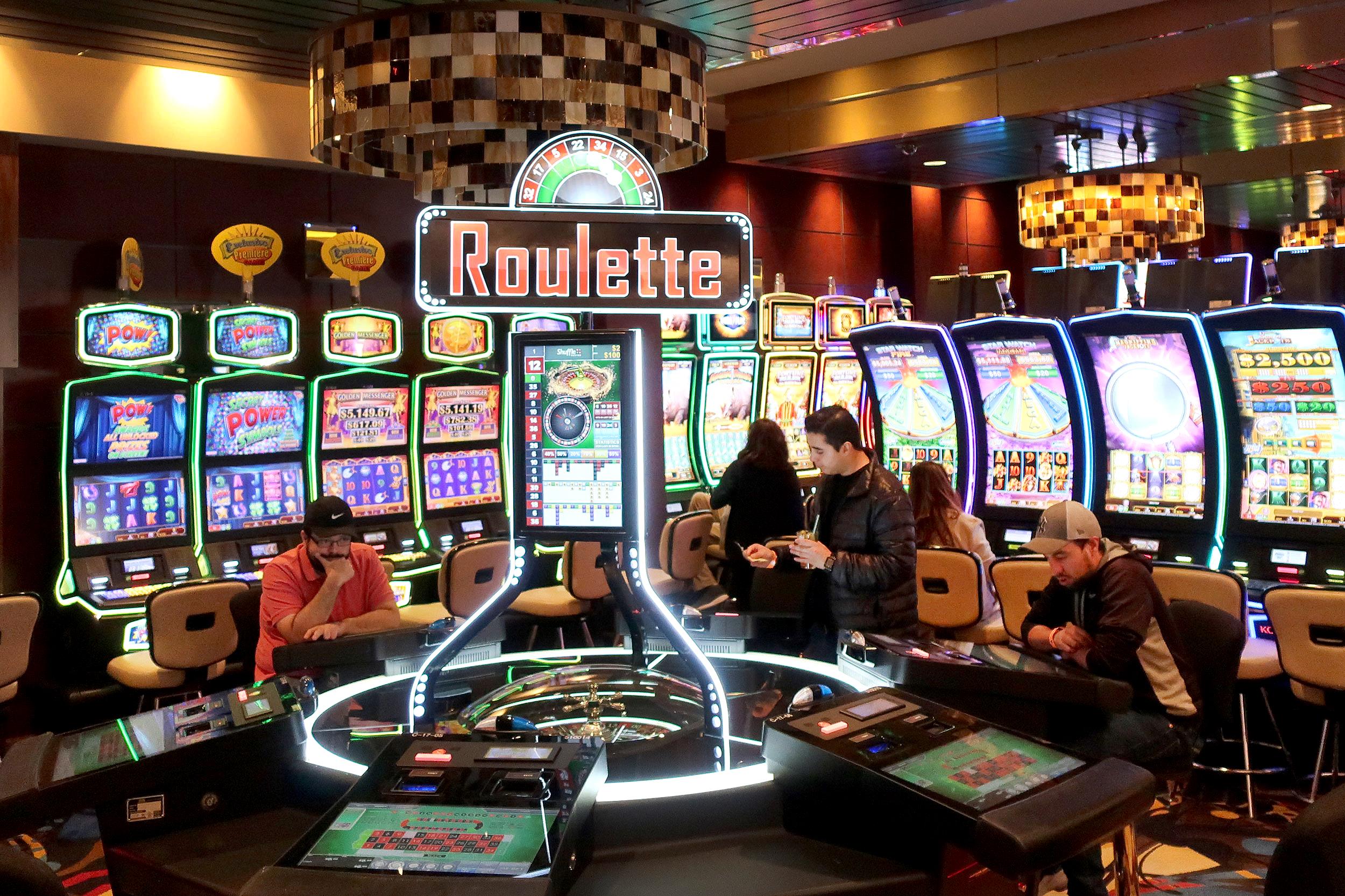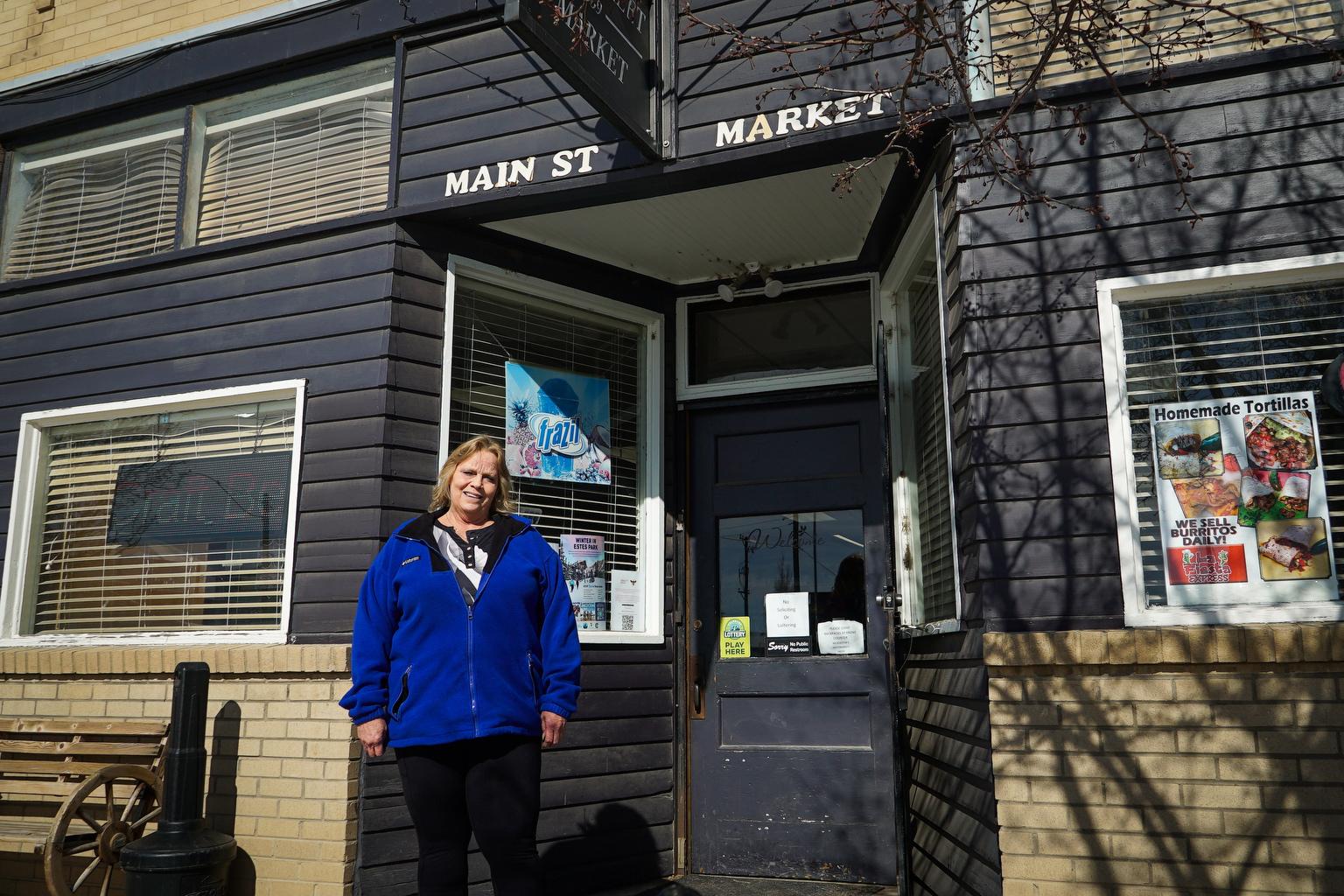
When state Rep. Alec Garnett heard the U.S. Supreme Court would allow states to start sports gambling he didn’t waste a moment. Colorado’s Democratic House Majority Leader immediately called 'dibs.'
He tweeted that he would sponsor a bill he initially thought would be a slam dunk for passage since there were so many reasons to do it.
“The black market exists, a lot of people sports bet, the Supreme Court kicks out states prohibition from legalizing it, states across the country are doing it, so it’s like, ‘Oh, yeah, no brainer.’ And then you’re like, ‘Oh, it’s Colorado, and nothing’s easy in Colorado,’” Garnett said.
Everyone wanted a piece of the action.
Pro sports leagues wanted fees from casinos and the horse track in Aurora wanted a sportsbook too. The battle was so heated it could have scuttled the bill. But in the end, the casinos came out on top. Sportsbooks will be confined to Colorado’s 33 mountain casinos. And importantly, they can set up mobile betting operations.
“Coloradans will be able to download the app, fund the app from anywhere within the state, and place a bet from anywhere in the state,” said David Farahi, chief operating officer of Monarch Casino in Black Hawk.
But only if voters approve Proposition DD, a tax on casinos that will appear on a majority of ballots that are soon to arrive at homes statewide. All new taxes must go to voters for approval in Colorado, per state constitutional rules. The only new taxes to pass a statewide vote have been sin taxes.
Casinos are hopeful that will be true this election too — because they could use the boost in revenue.
Colorado’s casinos are bound to three historic mining towns: Black Hawk, Central City and Cripple Creek. In 1992, voters approved a change to the state constitution that created this limited gambling industry.
In recent years, casinos have struggled to grow. Gambling revenue from slots and table games is down less than 1 percent in 2019. Casinos contend it should be growing quickly given the state’s economic performance. Sports gambling isn’t expected to be savior, but the casinos will take any help they can get.
If voters approve the tax on sports gambling, the other winner will be water. The new tax on casino profits will start to fund some water conservation projects in Colorado. It’s not a lot of money, but supporters say it’s a start. In the first year, the state estimates it would bring in $6.5 million, and $11.2 million by the second year.
Garnett said the idea was first proposed after he tweeted that he’d sponsor a bill on sports gambling.
“All of a sudden I got a few people reaching out to me from the Environmental Defense Fund, from other conservation groups, saying they want to sit down to talk about sports betting,” Garnett said.
It turned out to be a smart political move because water has bipartisan support across the state. And Colorado has a history of tying gambling to conservation. The Colorado Lottery helps fund outdoor recreation projects around the state.
But not everyone thinks this is a great idea. Jeff Hunt with the socially conservative Centennial Institute said gambling, aside from being a sin, hits poor people the hardest.
“Because the house always wins,” Hunt said. “It disproportionately harms [the poor] because it’s tougher for them to recover.”
Hunt acknowledged there’s a strong libertarian streak in Colorado’s Republican Party. Conservative House Minority leader Patrick Neville is a co-sponsor on the sports gambling bill. But in Hunt’s view, legalizing sports gambling in Colorado has nothing to do with freedom, and is likely to push many to new addictions. Though there will be some money for treatment.
Hunt is the closest thing to an organized opponent to Proposition DD, and he has no money to fight it. Meanwhile, proponents from conservation groups to casinos have poured $904,493 into the campaign.
But Hunt is still hopeful.
“David took on Goliath, you know, we’ve seen stranger things," he said.
Goliath is spending big on TV ads. And the campaign stresses that casinos will pay the tax, not you, because the ballot language is a little confusing.
“A sports betting tax that only casinos will pay, DD is a win for Colorado’s water. Vote yes on DD,” states one ad.
These ads are funded in large part by FanDuel, a bookmaking and fantasy sports site, which contributed $250,000 to the campaign. If the new law is approved by voters, FanDuel would have the ability to contract with casinos to build their mobile betting apps.
Gov. Jared Polis, who signed the legislation which creates the legal framework and authorizes the November vote, listed a small ownership stake in FanDuel in financial disclosures he filed when he was in Congress in 2018.
His spokesman said Polis doesn’t control the fund that invested in FanDuel, and the spokesman wasn’t sure if Polis still owned a $1,000 piece of the company, but added that the governor does not bet on sports other than occasionally participating in March Madness basketball pools. By any measure, the FanDuel investment would represent a tiny portion of his multi-million dollars in investments in companies and real estate.
If Proposition DD pass, the ads won’t end. Soon casinos will be carpet bombing the airwaves.
“There’s going to be a big fight to get market share at the beginning,” said Farahi.
Sadly, for sports betting fans, if DD passes the state won’t allow the first bets until after the 2020 Super Bowl. But by May 1st, brave gamblers can place any futures bet that the Broncos will win the 2021 championship.









